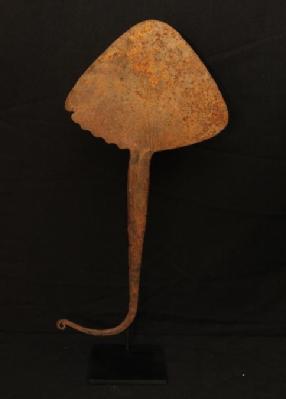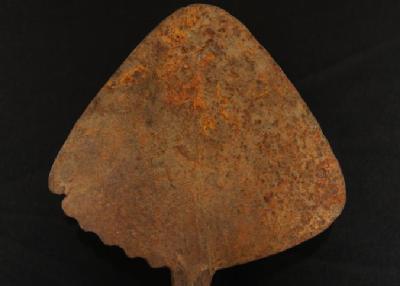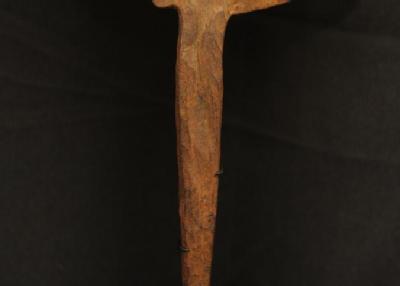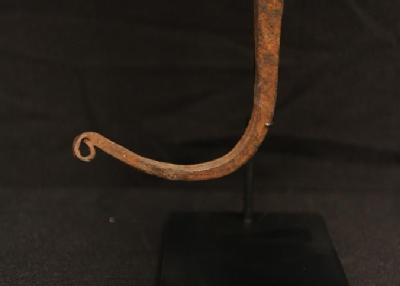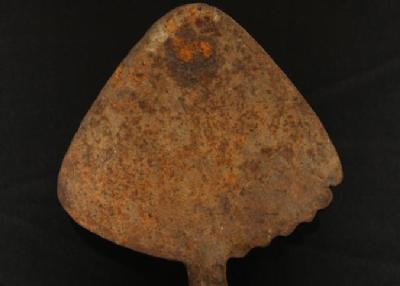Once in a lifetime auction of African Art to be offered for public auction from the Rosen Collection!
Many of the articles in this auction from the Rosen collection are documented with explanations of their purpose(s) to the people of Ghana in the “Emblems of Power Asafo Flags from Ghana” By Mary Sue and Paul Peter Rosen. To purchase a copy of this book, please email our offices at info@aarauctions.com
Payment must be completed by Friday, February 20 by 3PM.
Pickup in Pleasant Valley, NY must be completed by Wednesday, February 25 at 3PM.
All lots sold as is, where is. Payment methods include cash, PayPal, MC, Visa, Discover or good check. You can make credit card payment online by going to your Member Area and selecting your invoice. To pay by PayPal, send money to info@aarauctions.com.
Many of the articles in this auction from the Rosen collection are documented with explanations of their purpose(s) to the people of Ghana in the “Emblems of Power Asafo Flags from Ghana” By Mary Sue and Paul Peter Rosen. To purchase a copy of this book, please email our offices at info@aarauctions.com
Payment must be completed by Friday, February 20 by 3PM.
Pickup in Pleasant Valley, NY must be completed by Wednesday, February 25 at 3PM.
All lots sold as is, where is. Payment methods include cash, PayPal, MC, Visa, Discover or good check. You can make credit card payment online by going to your Member Area and selecting your invoice. To pay by PayPal, send money to info@aarauctions.com.
Auction Info
Once in a lifetime auction of African Art to be offered for public auction from the Rosen Collection!
Many of the articles in this auction from the Rosen collection are documented with explanations of their purpose(s) to the people of Ghana in the “Emblems of Power Asafo Flags from Ghana” By Mary Sue and Paul Peter Rosen. To purchase a copy of this book, please email our offices at info@aarauctions.com
Payment must be completed by Friday, February 20 by 3PM.
Pickup in Pleasant Valley, NY must be completed by Wednesday, February 25 at 3PM.
All lots sold as is, where is. Payment methods include cash, PayPal, MC, Visa, Discover or good check. You can make credit card payment online by going to your Member Area and selecting your invoice. To pay by PayPal, send money to info@aarauctions.com.
Many of the articles in this auction from the Rosen collection are documented with explanations of their purpose(s) to the people of Ghana in the “Emblems of Power Asafo Flags from Ghana” By Mary Sue and Paul Peter Rosen. To purchase a copy of this book, please email our offices at info@aarauctions.com
Payment must be completed by Friday, February 20 by 3PM.
Pickup in Pleasant Valley, NY must be completed by Wednesday, February 25 at 3PM.
All lots sold as is, where is. Payment methods include cash, PayPal, MC, Visa, Discover or good check. You can make credit card payment online by going to your Member Area and selecting your invoice. To pay by PayPal, send money to info@aarauctions.com.
Categories:
Hoe blade with jelly fish form on custom base. Serrated edge used for cutting brush. Hand forged iron. H 16in. Mambila people, Nigeria. Old African hoe blades (early to mid-20th century). Because of the work required of blacksmiths to forge them and the essential importance of farming for survival, hoe blades such as these were highly valued and serve as currency before machine made blades were imported by European colonial traders. Hoe blades were often part of bride price. See “An Ethnographic Study of Traditional Money” by Charles Opitz, pp. 157-158. (Also see lot # 73).
More Details
Hoe blade with jelly fish form on custom base. Serrated edge used for cutting brush. Hand forged iron. H 16in. Mambila people, Nigeria. Old African hoe blades (early to mid-20th century). Because of the work required of blacksmiths to forge them and the essential importance of farming for survival, hoe blades such as these were highly valued and serve as currency before machine made blades were imported by European colonial traders. Hoe blades were often part of bride price. See “An Ethnographic Study of Traditional Money” by Charles Opitz, pp. 157-158. (Also see lot # 73).
High Bid:
$60.00 – artie
Auction Type: One Lot
Quantity: 1
Bidding has closed on this lot

